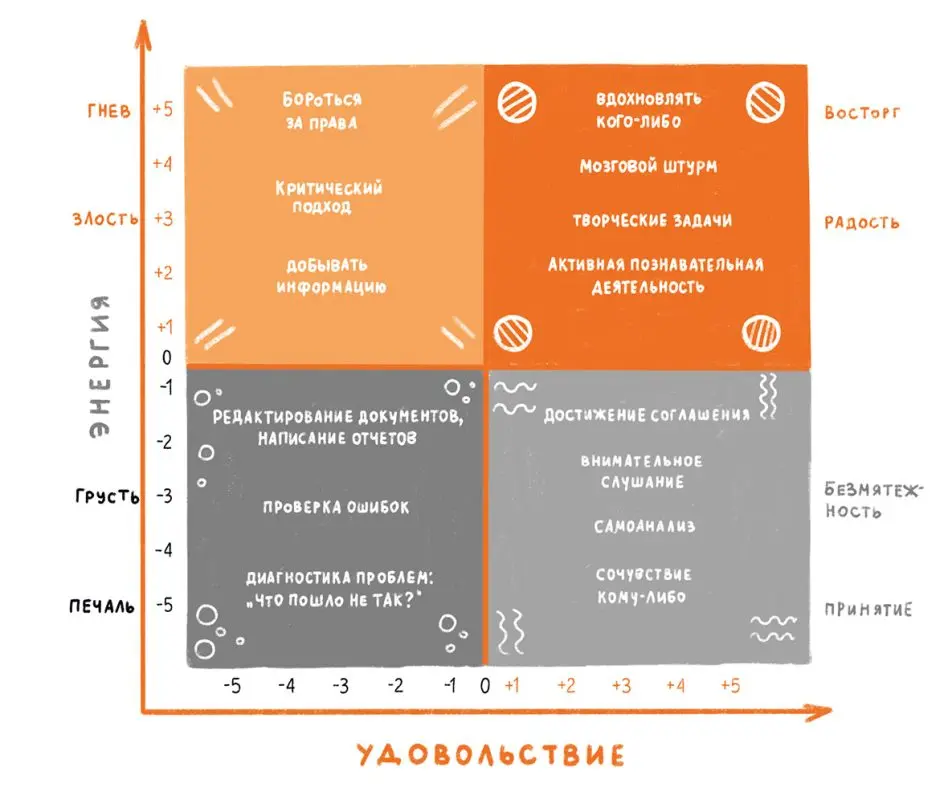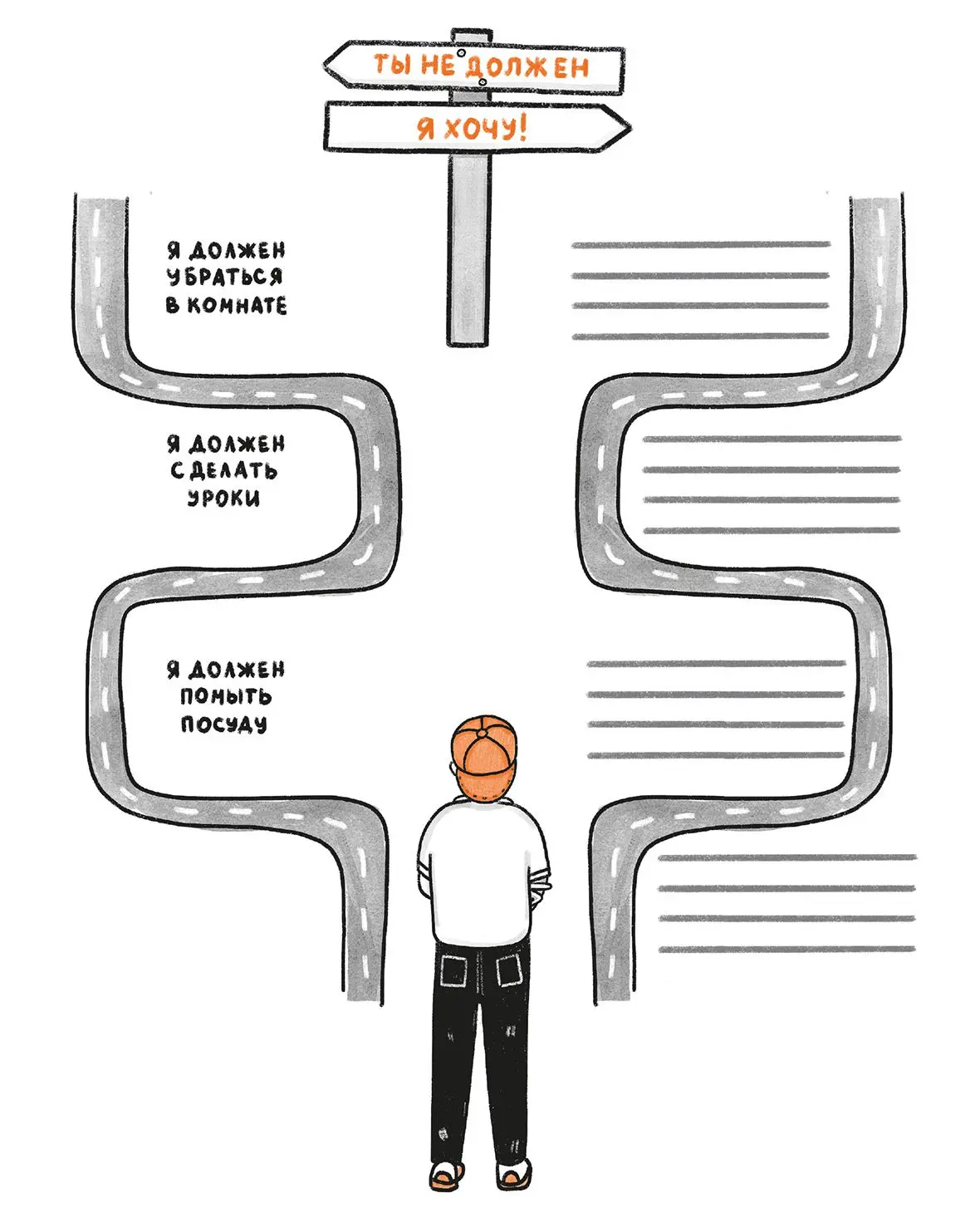Contents
Each emotion can become a resource for achieving a goal, so the development of emotional intelligence is an important component of success, says psychologist Victoria Shimanskaya
Emotional intelligence is the ability to understand emotions, feelings and experiences – one’s own and others. It allows you to make the whole range of emotions your assistant to achieve goals and complete any tasks.
We rarely think about what causes irritation, joy or anger. A person with a developed emotional intelligence can read these signals and reacts not to actions and emotions, but to the reasons behind them. Even the strongest experiences do not obscure the eyes of such a person.
Who needs to develop emotional intelligence?
Today, the world is changing very quickly: to achieve success, it is no longer enough to be a specialist in any one field of knowledge or to receive one diploma of higher education. Therefore, it is more important than ever to develop the so-called soft skills, among which are those that can be classified as emotional intelligence. This is true for people of all ages, but especially for teenagers.
Adolescence is a time when there is an active process of building external communications. If until this moment the world of the child was sufficiently defined, and almost all problems were solved by adults, then in adolescence a person enters a new stage of communication and socialization. He himself begins to make decisions: with whom to communicate and who to be, for the first time difficult life situations arise.
Therefore, it is necessary to help a teenager develop several aspects at the same time, namely an understanding of his goals, intentions, experiences and the ability to build communication with peers, parents and other adults. This is facilitated by a well-developed emotional intelligence.
How to develop emotional intelligence?
It is important to understand that work on emotional intelligence awaits parents of teenagers. In puberty, hormonal changes take place, as a result of which children become very difficult to communicate: it seems that adolescents do not hear adults at all, and there is almost no talk of transferring experience. This will require a developed emotional intelligence of the parents themselves.
Most importantly, do not forget: the intentions of a teenager are always positive, no matter how negative actions they manifest themselves. The wisdom of parents at this moment should be to not react to abrupt and sometimes inadequate actions, but to try to understand the intentions, as well as reconsider the requirements for a teenager.
Parental assistance will consist of doing tasks with the child to develop emotional intelligence. Here are a few practices that I recommend. Have your teen complete them. By the way, these practices have no age restrictions: for many adults, they will be no less useful.
About understanding yourself
Exercise “Square of moods”
Reading the mood in which the interlocutor is located allows you to assess the prospects for communication and quickly choose an approach. Below is a diagram that will clearly show why it is sometimes so difficult to establish communication and agree on something.

This is the square of emotions or moods. Mood can be determined by two criteria. Pleasure is an emotional component. Energy is physical. Try to assess your energy level and emotional level now. What sector are you in?
By the way, a person can act effectively in any of the four states, examples of suitable activities for each are inside the colored squares.
Gradually, you can learn to recognize in which sector of the mood the interlocutor is, and then it will become easier to communicate.
About communication with peers
Exercise “Do not be offended!”
When someone says offensive words or tries to offend, it is important to remember that all nicknames, “name names” have nothing to do with reality. From being called an elephant, ears or a trunk will not grow. This is just a “distorting mirror”, which you can always walk past, ignoring the strange image. Ignoring is another way not to be offended and not to “feed” the offender with your reaction. To make it easier, you need to ask yourself the question: “Does the opinion of the person who says this really matter to me?” After that, step back completely.

The associative chain helps to switch to ignore mode. Look around you. What do you see? For example, you see a table, a chair, a wardrobe. Zero emotions. And you continue – the offender. Table-chair-closet-offender – no emotions. And you can also imagine the offender in some funny or stupid situation, so that it simply did not work out to be angry with him. You really have to try not to laugh.
About communicating with parents

Words often evoke a negative reaction just because of their coloring, although their meaning is neutral or even positive. The most striking reaction is usually to the word “should”: “you must study”, “must clean the room”, “must walk the dog”, “must listen to what you are told.”
To tell the truth, no one owes anyone anything. You are nobody, but you are nobody and nothing. Realizing this helps to take a fresh look at many things. Here’s how to decipher a few common parenting lines.
1. “You must study” = “I’m worried about your future.”
2. “You should clean the room” = “you will be more comfortable.”
3. “You should walk your dog” = “your dog is also alive and he misses you.”
Sounds much more optimistic! And now for each “should” in the left column, you can write on the right why you should want it. For example, “You must study” could mean “I want to study well so that I can have a good job and a decent standard of living in the future.”
I am sure that the conscious development of emotional intelligence in adolescents and adults improves the quality of life, family relationships, in addition, developed soft skills are a good foundation for a successful life of a child, no matter what field of activity he chooses.










